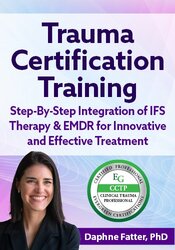Enrol in an online course today for flexible, self-paced learning—no fixed schedule required. Plus, enjoy lifetime access to course materials for convenient revisiting.
Why Existential Therapy’s Time Has Come

Existential therapy is coming into its own in the midst of a world in turmoil. At a time of international crisis, political upheavals and climate change, existential therapists have much to offer to people who are anxious and confused, perturbed and despondent.
Existential therapists won’t interpret your troubles for you, they will help you to make sense of them in your own way. They will help you to search and ponder in order to discover what lies behind and beyond them. You will enter into a conversation with somebody who has a philosophical and psychological background as well as in-depth training in a variety of forms of psychotherapy, but who will not impose their worldview on you.
Existential therapy has been developed for more than a century in various parts of the world, initially principally in Austria, Switzerland, France, Germany and Russia, but then also in the USA and the UK and latterly very much in places like Scandinavia, Greece, Turkey, Israel, China, Latin America and Australia. Yet existential therapists have always hidden their practice and it has never really become very well known or generally accepted. It’s often been reserved for people in the know and those who are aware that what they are going through is a life crisis.
Existential crises are everywhere now, as we are much more aware of the potential of the climate and moral emergencies that the world is now facing. So, existential therapy is finally becoming more visible.
In 2015 the First World Congress for Existential Therapy took place in London. Over 650 existential therapists, from many different parts of the world, including China and Africa, came together to talk about how to help people in existential crisis. In 2019 we had the second World Congress in Buenos Aires and in between those two events we produced the Wiley World Handbook of Existential Therapy, with six editors and hundreds of contributors. It brought together all these different orientations of existential therapists, the humanists, the integrationists, the phenomenologists, the group specialists, the Daseinsanalysts and the logotherapists. It is a good summary of existential therapy as it has evolved over its first century. Nevertheless, many existential therapists pride themselves in tracing their roots back to classic philosophies, be they Western or Eastern.
Existential therapy is an approach that could not be more relevant in today’s world, because it is cross cultural and starts from doubt, seeking to face the fears that people try to hide. It refuses to give easy answers and knows no short cuts. It is uncompromising and demanding, claiming that no one is exempt from taking responsibility for their own life. It is not in favour of the habit of labelling and it refuses to consider people’s problems in living as symptoms of mental illness. Instead it proposes a vigorous process of deliberation that elucidates what is going wrong and what would be right for a person in order for them to feel vital once more, strong and in charge. It is all about liberation, about enabling people to take ownership of their existence and find the joy and wonder that they have lost.
Perhaps our politicians should be put through some weeks of existential therapy: facing up to their own paradoxes and contradictions and learning to take responsibility for their choices, actions and impact on the world around them. For existential therapists believe that we can never work in isolation with just one person: people are always part of a system, part of a complex world, that affects them and that we can learn to gently and purposely affect in return.
A good introduction for total beginners is the slim volume: Existential Therapy: Distinctive Features. But for those who want the whole story, the World Handbook is essential reading. Existential therapy is a practice, whose time has come. It can be mind blowing and open your sense of yourself in new ways, that you never expected were possible.
















